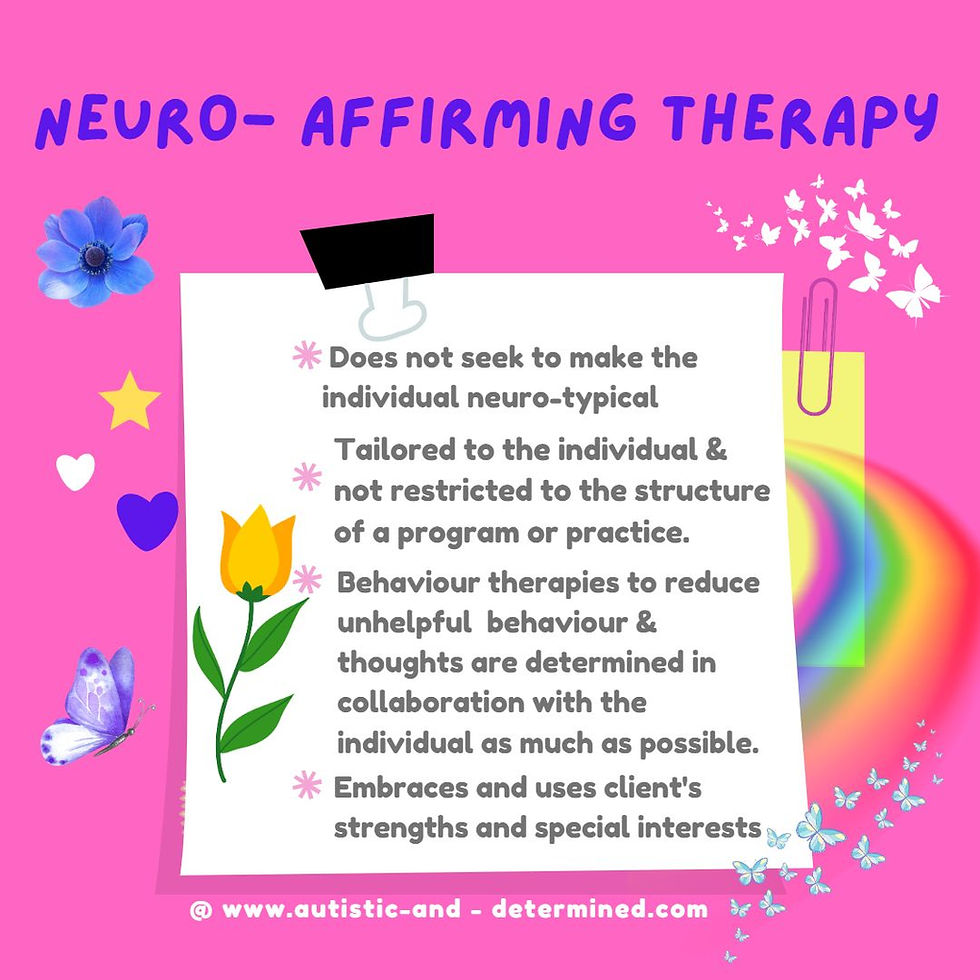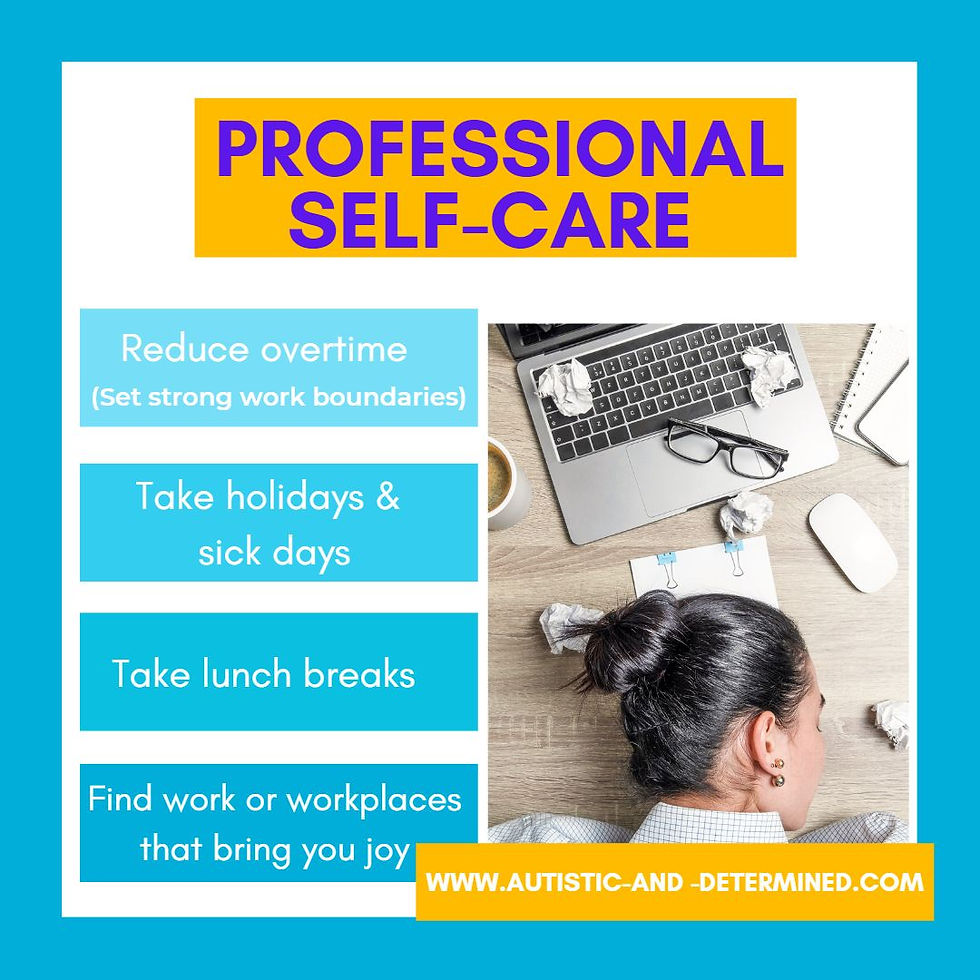Late Diagnosis Autism - Series Part 2
- Autistic & Determined

- May 15, 2023
- 2 min read
Jessica P’s story
Some autistics choose to self-diagnose after a lot of contemplation and research into autism. Most of the people I know that are self-diagnosed; are parents of autistic children who have learned about the complex profiles and presentations of autism after years of supporting their children through therapy. They begin to question if they are autistic after seeing autistic traits in their children; traits they had once considered neurotypical because they share these traits with their children.
My friend Jess officially self-diagnosed at the age of 38 after 3 years of contemplation and research. She has chosen not to seek a formal diagnosis because it is too expensive, and she feels that she has all the support she needs to live a happy and fulfilled life. Her son is autistic, and she is surrounded by a lot of neurodivergent friends who accept her and support her. Knowing Jess, I would guess she would be diagnosed with autism 1,1, which would not allow for access to the NDIS anyway. You may ask -Why bother to self-diagnose? Well because it helps her better understand herself and apply tools she has learned from her son’s therapy, her counselling degree, and her neurodivergent friends that allow her to retain her contentment and fulfilment in life.
Jess started to question if she was autistic when she became easily fatigued by social interactions and struggled with emotional regulation, needly time alone to ‘recover’. After this, she noticed that she had a significant rigidity that affected her relationships with others, based on rules and routines that she set but were not shared by others. Jess has been able to manage any impacts caused by these autistic traits with her current support and has not sought therapy for herself. Jess has read countless journals, and books and attended lectures to advance her knowledge of autism, She has used her counselling degree to self-reflect and support her growth as a human.
Jess recommends-

1. Talk to other autistic people
2. Glean knowledge from podcasts, books, Tik Toks, lectures, support groups, and online groups/blogs/vlogs.
3. Read the book – Reframe Your Thinking About Autism by Holly Bridges.
.png)



Comments